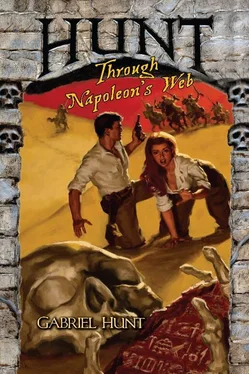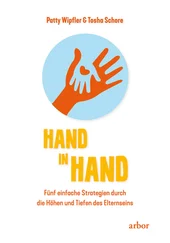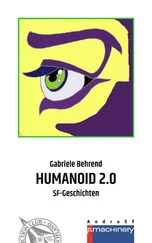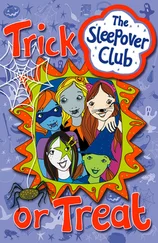Gabriel stopped stretching his arms. He’d been doing it unconsciously. “Sorry. I pulled some muscles yesterday in that cave. It’s nothing. Just a little sore.”
“I can imagine,” Michael said, a censorious note creeping into his voice. “All I can say is thank goodness I was able to reach you down there. If you’d been out of range . . .”
“I thought I was,” Gabriel said.
“Well,” Michael said, “when you pay thirty thousand dollars for a cell phone, you do get something for your money.”
“Thirty thousand? Really?” Gabriel said. “I’ll try not to leave it in a cab.”
“Gabriel, what are we going to do?” Michael threw the printout onto the desk, where it slid off onto the floor. He didn’t pick it up. “I could never live with myself if they hurt her.”
“Lucy’s a tough customer,” Gabriel said. “She can handle herself. She’s probably giving them orders already.”
“She’s twenty-six years old,” Michael said. “These men are killers.”
“You didn’t say anything about killing,” Gabriel said.
“Two guards at the Louvre,” Michael said. “One in Turkey.” He paused, took a deep breath, let it out. “Decapitated.”
There was a beat of silence.
“So I guess I’m going to Cairo,” Gabriel said.
Michael nodded miserably.
“I’ll get her back,” Gabriel said.
“She may be dead already,” Michael said, his voice dropping to a whisper.
Gabriel picked the sheet of paper up from the floor. “They pulled this stunt because they want something from me,” he said. “As long as that’s the case, she’s alive.”
The Discoverers League was empty and quiet that night.
Gabriel had calmed his brother by taking him to Andrei’s place for a bite (Michael had protested that he wasn’t hungry, but after his third glass of divin he was able to put away a plate of Andrei’s parjoale ). By the time Gabriel had seen Michael home and hopped a taxi to the building on East 70th Street, it was nearly midnight.
Hank, the elderly doorman who’d been with the club seemingly since its founding, greeted Gabriel warmly and handed him a bundle of mail that had collected since the last time Gabriel had been home. Gabriel got into the elevator and took it to the top floor of the building, where he kept a suite of rooms. The League’s board of directors tolerated Gabriel’s presence in the building because of who he was—the Hunt Foundation contributed generously each year—and because some of his higher-profile finds brought the organization the sort of attention that helped with their other fund-raising. But their feelings about him were mixed. They’d had to spend a portion of the funds he donated on patching bullet holes in the walls and getting blood out of the upholstery, not to mention paying soaring insurance premiums, and some of the more staid directors complained that his exploits attracted less attention than notoriety. This discussion regularly consumed twenty or thirty minutes at the start of every board meeting; as the meeting room was directly below his apartment, Gabriel could sometimes hear the raised voices. But so far, no eviction notice had been slipped under the door, and the bullet holes kept getting repaired.
The two-bedroom suite was a little piece of paradise for Gabriel. Like most New York apartments, the place wasn’t large, but it was everything he needed. The master bedroom had a four-poster and a dresser, though barely enough room to walk between the two. The guest bedroom was more of a catchall; it contained a lot of his “stuff,” such as traveling gear and clothing. The living room was comfortably compact, dominated by a tiger skin rug (Gabriel had reluctantly been forced to shoot the animal when it had tried to eat him in India). The space had a lone couch, a desk, a few shelves of books. No computer, no television. Gabriel’s prized piece of furniture was an antique Baldwin upright grand piano, manufactured in 1924 and as near to mint condition as one could get after nearly ninety years. He took better care of it than he did his own body—his sore arms attested to that.
Michael had arranged things so Gabriel could take the Foundation’s private jet the following day. It beat having to deal with commercial airlines, and it also meant Gabriel could bring his Colt .45 pistol in his carry-on without anyone batting an eye. He hated being out of the country without it—so whenever possible he took the jet.
Michael had been delighted to put it at his disposal, but had been surprised when he’d insisted on flying into Nice, France, rather than directly to Cairo. “Why there, Gabriel? I’d understand if you wanted to stop in Paris, talk to the people at the Louvre, but—”
“There’s an Egyptologist I know,” Gabriel had said vaguely, “in Nice.”
“Really?” Michael had said. “Who? Bourgogne? But no, he hasn’t been at Antipolis since ’08 . . .”
“It’s no one you know,” Gabriel had said.
“An Egyptologist I don’t know?”
“Yes, hard to believe, isn’t it,” Gabriel had said, and changed the topic as quickly as he could.
There was no Egyptologist in Nice that Michael Hunt didn’t know. Nor was there one Gabriel was going to meet. What there was in Nice was the last address Gabriel knew of for his sister. She’d been under house arrest for a time in Arezzo, Italy, and then somehow the charges wound up being dropped, or anyway that’s what she’d claimed in her e-mail. The hasty change of countries was typical, and for all he knew she’d since abandoned the apartment in Nice. But since Nice was the last place he’d known her to be, Nice was the first place he had to go.
Gabriel showered, toweled off, and studied himself in the bathroom mirror. His slightly curly, midnight black hair was in need of a cut, but that could wait. The various scars and bruises on his well-toned torso told many tales. He even remembered some of them.
Barefoot and bare-chested, Gabriel went to his kitchen, grabbed a bottle of Remy Martin, and poured himself a shot. He then sat on the piano bench and let his fingers roam absently over the keys. After a moment a melody emerged—“In the Still of the Night,” one of his favorites. But somehow tonight it didn’t fit his mood.
A framed photograph of the three Hunt children sat atop the piano. Gabriel had just turned sixteen when it was taken. That would make Michael ten and Lucy only four years old. She’d been an adorable little girl. Somewhere between four and fourteen, the adorable had faded and all sorts of simmering hostility had taken its place—but somehow never directed at Gabriel. Their parents, Michael, her classmates, her teachers . . . they’d all come in for their share of Lucy’s particular brand of resentment. But Gabriel had always been spared. Maybe, he thought, it’s because I wasn’t around much.
By the time she’d run away—run away for good, Gabriel corrected himself; there’d been briefer disappearances before—she’d become quite the rebel, outspoken and independent and always looking for something to tear down. If she’d grown up in the sixties, he imagined Lucy would have found her way to Haight-Ashbury or onto Kesey’s bus; in the seventies, she’d have been into punk rock. In fact, she was into punk rock, or at least the trappings that went with it. She had so many tattoos and piercings now that Gabriel had stopped counting them the last time he’d seen her.
He had to save her .
It was that simple. They’d taken her because of him, and now he had to find a way to get her back.
The first step toward which was to find her, period.
Which was not so simple.
Thinking about Lucy in Nice—or was she now in North Africa?—put him in mind of Casablanca and he found himself picking out the melody line of the Marseillaise .
Читать дальше












